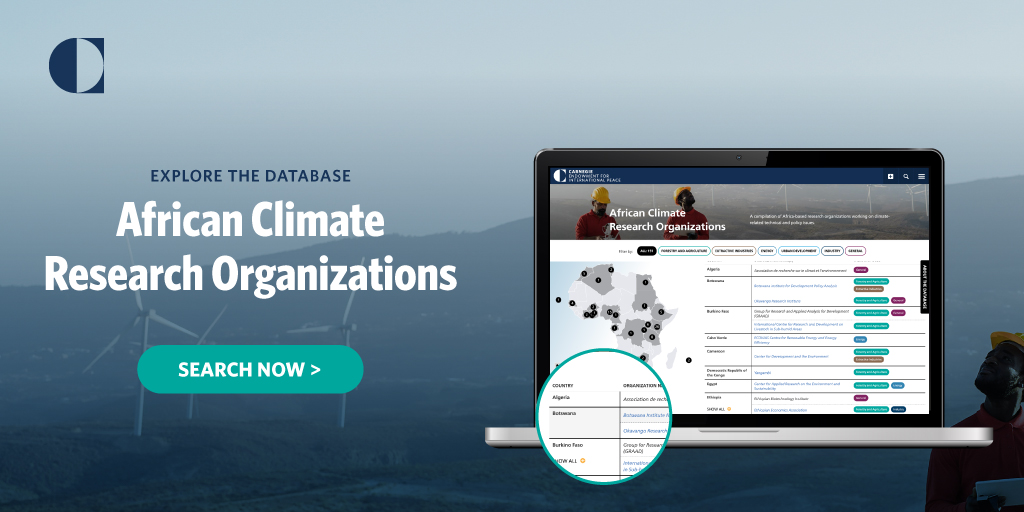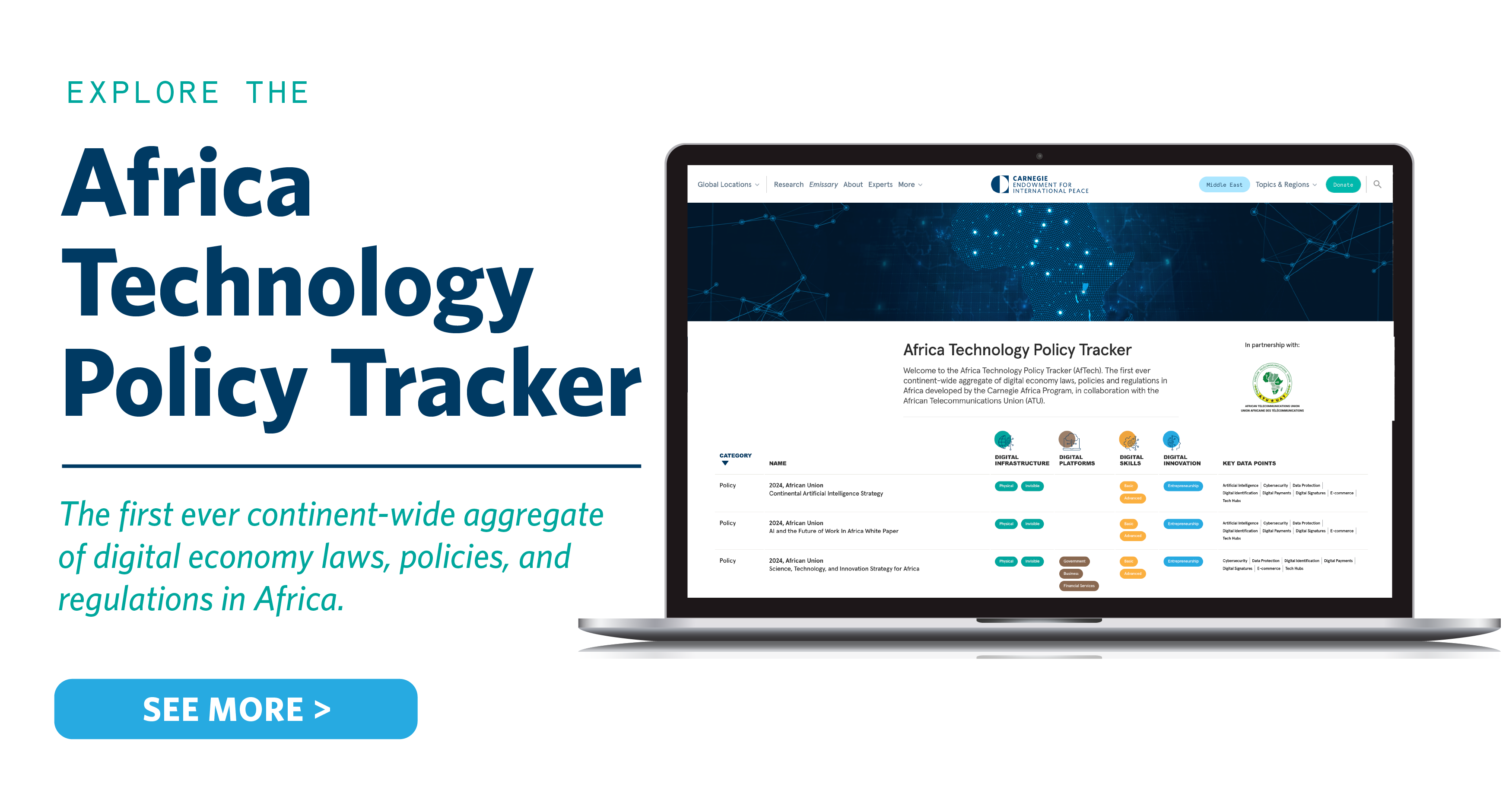The Africa Program focuses on economic, political, and transnational issues shaping Africa’s future. By conducting data-driven research, convening high-level dialogues, forging strategic partnerships, and amplifying African voices, the program addresses a crucial knowledge gap on Africa’s role in a changing global environment.
Program experts
Henok Asmelash
British Academy Global Innovation Fellow, Sustainability, Climate, and Geopolitics Program
Katie Auth
Nonresident Scholar, Africa Program
Frances Z. Brown
Vice President for Studies; Acting Director, Africa Program
Ramsey Day
Nonresident Scholar, Africa Program
Kholofelo Kugler
Nonresident Scholar, Africa Program
Nicolas Lippolis
Nonresident Scholar, Africa Program
Jane Munga
Fellow, Africa Program
Christian-Géraud Neema
Nonresident Scholar, Africa Program
Frederic Wehrey
Senior Fellow, Middle East Program
Sarah Yerkes
Senior Fellow, Middle East Program
Digital Features
Digital Features

African Climate Research Organizations
A compilation of Africa-based research organizations working on climate-related technical and policy issues.

Africa Technology Policy Tracker
The Africa Technology Policy Tracker (AfTech) is the first ever continent-wide aggregate of digital economy laws, policies and regulations in Africa developed by the Carnegie Africa Program, in collaboration with the African Telecommunications Union (ATU).
